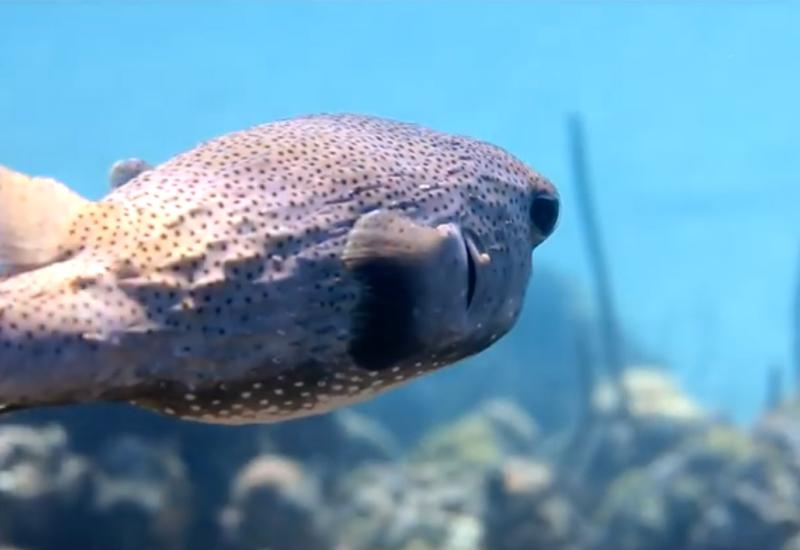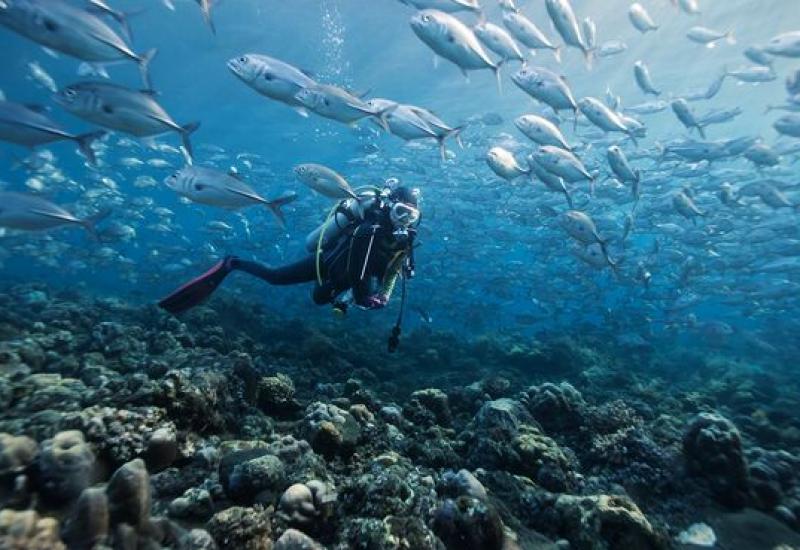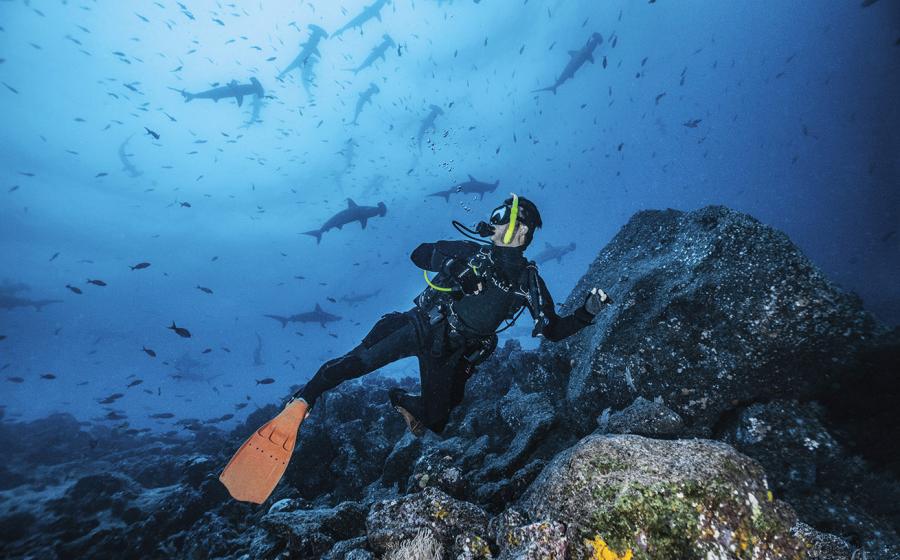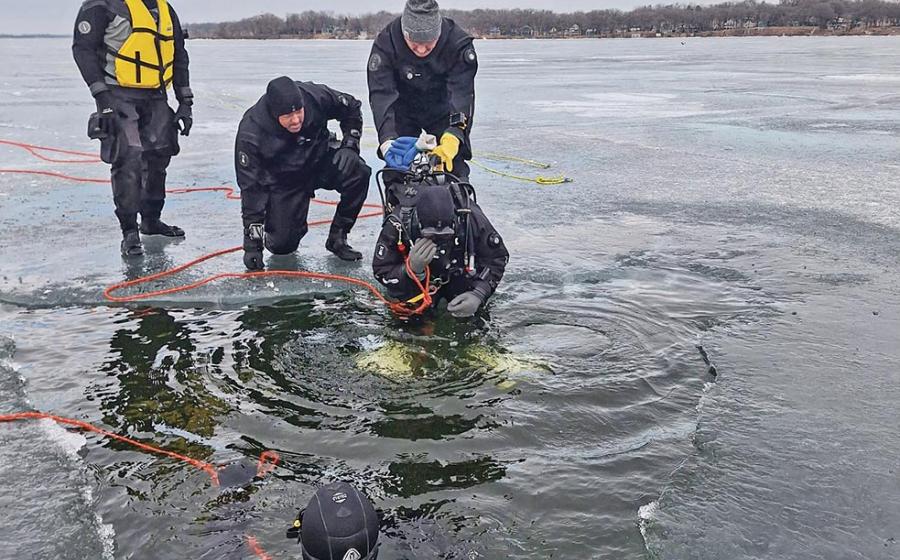Scuba Diving Hand Signals for Identifying Marine Life
We scuba divers can't talk underwater, yet communication is key for a number of reasons, including safety. But a good dive buddy also gives his or her fellow divers a heads-up when an interesting ocean creature is nearby. So how do you alert your dive group when a shark is finning by, a crab is hidden under a ledge or a tiny nudibranch is barely visible to the human eye? We've put together 23 scuba diving hand signals for identifying marine life — in the video above, or GIFs below — so that you and your buddies never miss out on spotting some of the ocean's most beloved creatures.
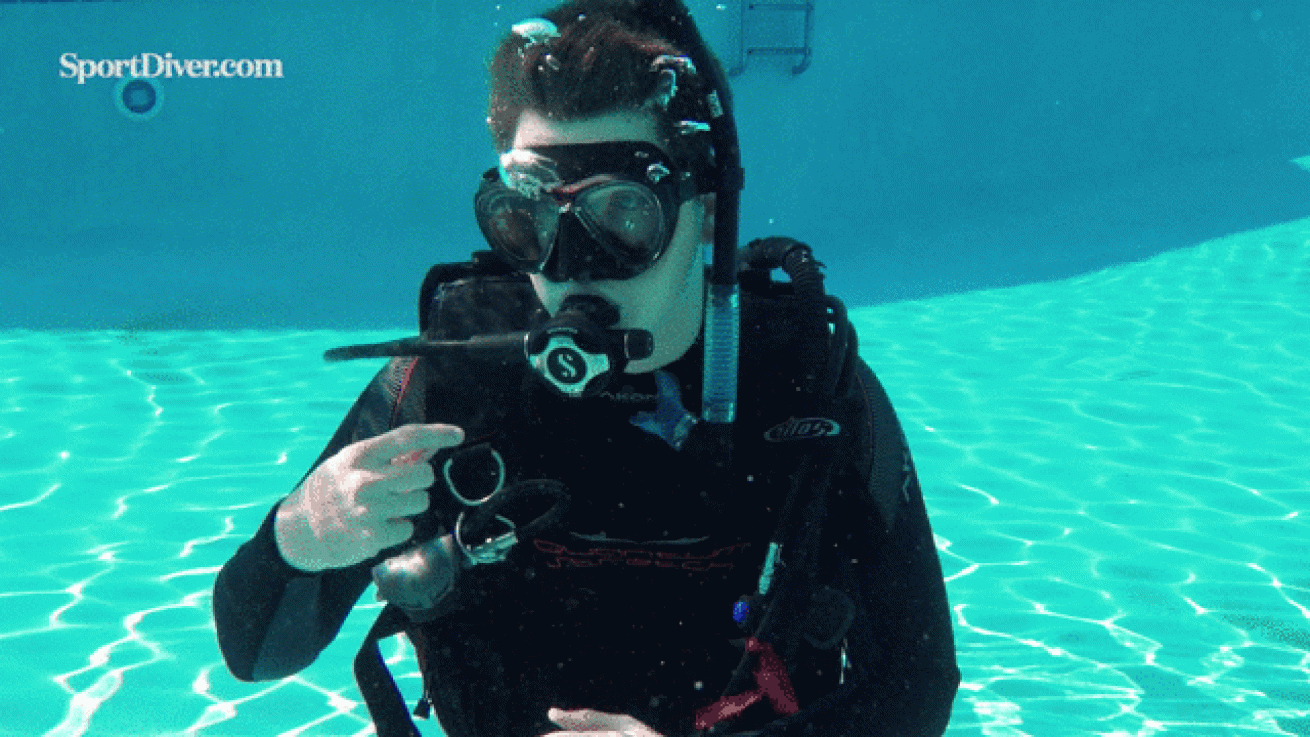
Chris BaloghAngelfish
Angelfish are a common sight — especially for divers who frequent popular Pacific and Caribbean and western Atlantic dive hot spots — but it's still a treat when you see them on a flourishing reef. Take your finger to make a circular motion around your head to mimic an angel's halo.
Boxfish
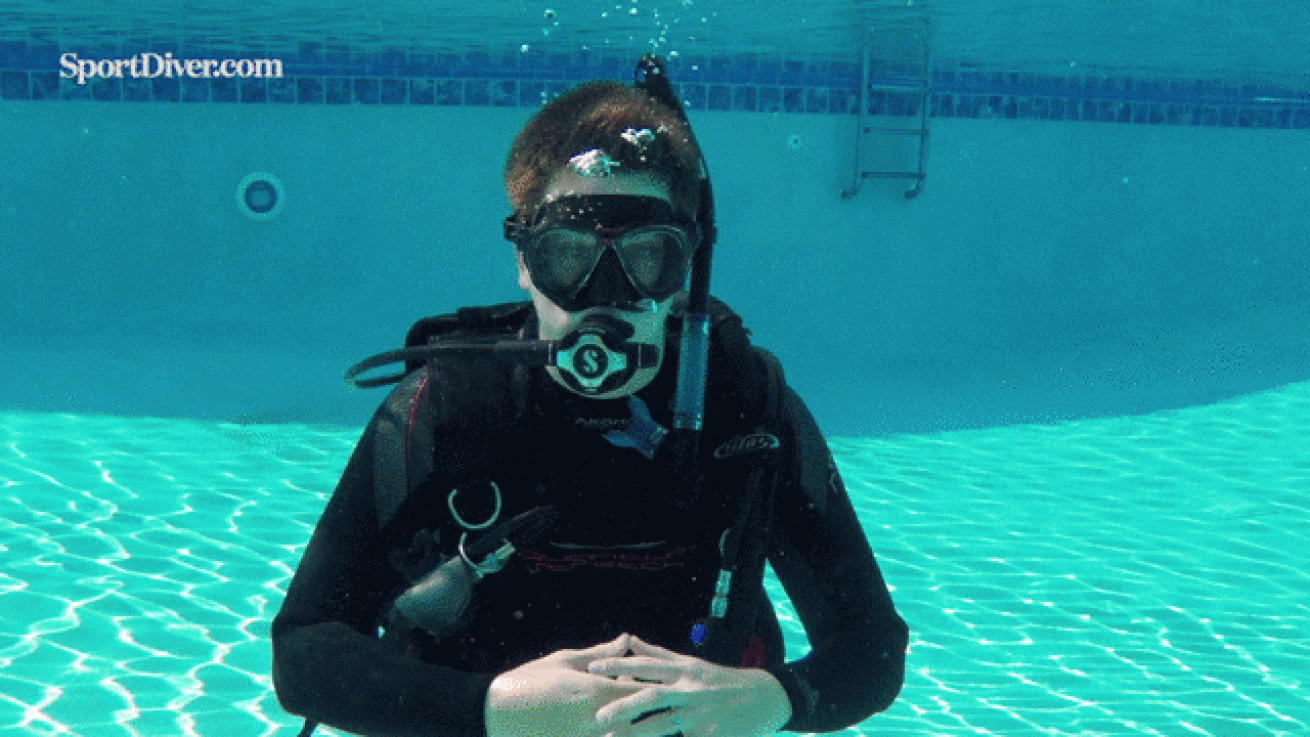
Chris BaloghBoxfish
The hand signal for a boxfish is pretty self-explanatory. Take your thumbs and index fingers to form a box, indicating that you've spotted a fish that, when overstimulated, releases a toxin lethal to some marine life.
Clown Anemonefish
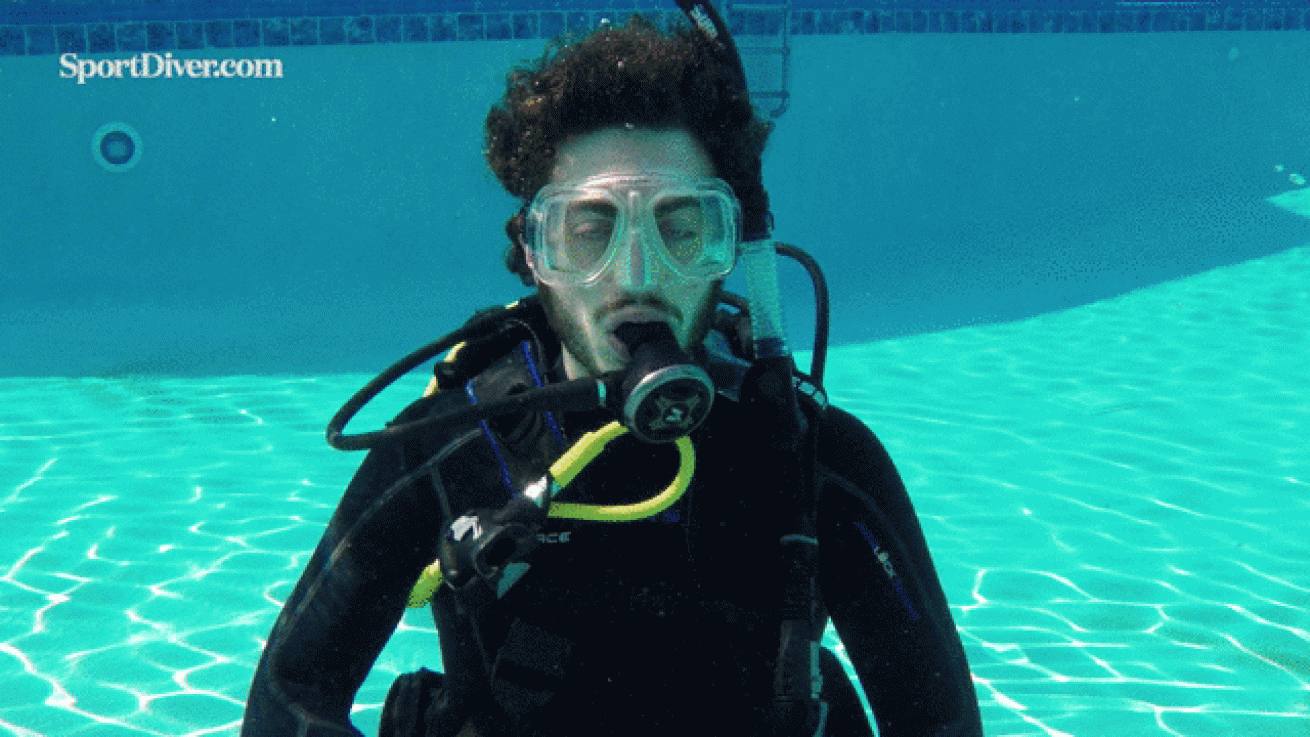
Chris BaloghClown anemonefish
Did you find Nemo? Let your buddy know by making a circular shape with your hand and putting it on your nose — in imitation of a clown's big red nose.
Crab
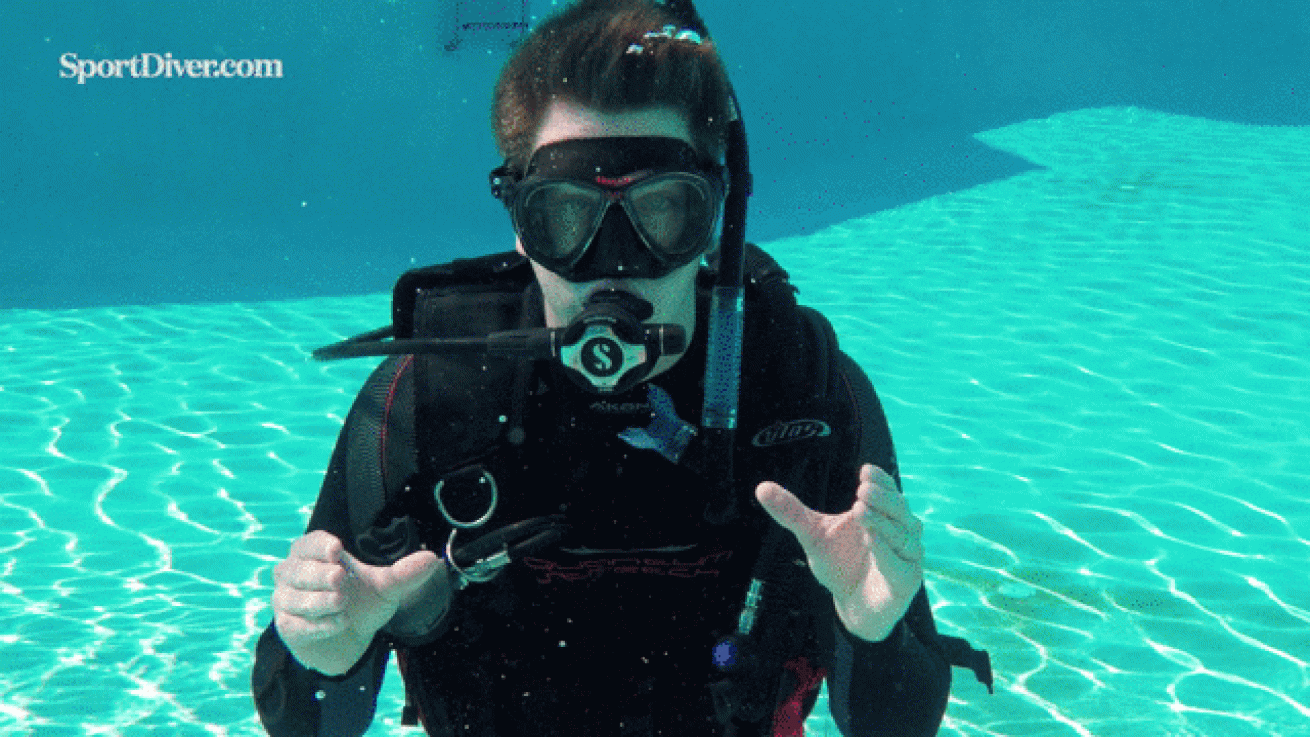
Chris BaloghCrab
Crabs are often found hiding under ledges or in the nooks and crannies of a reef. Pinch the fingers of your hands together like the pincers of a crab for this hand signal.
Barracuda
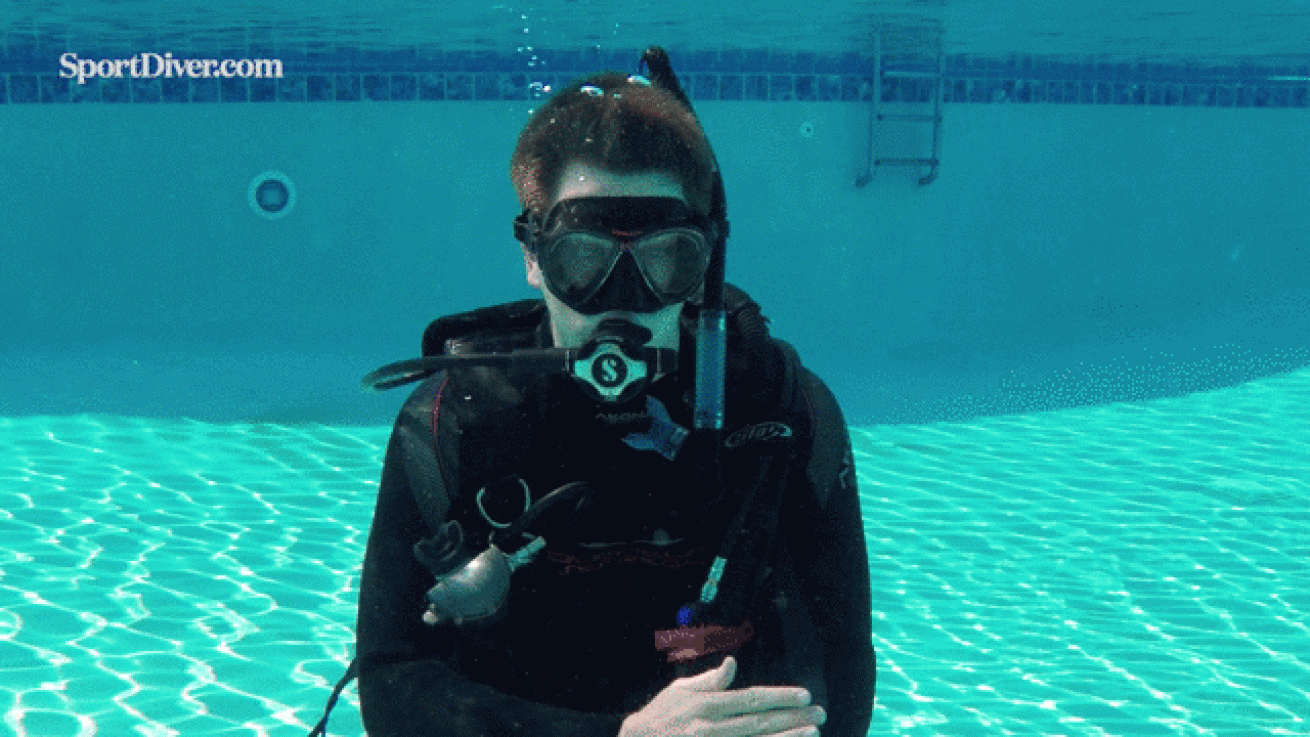
Chris BaloghBarracuda
With elongated bodies and sharp teeth, barracuda are easy to spot cruising around the ocean. Use your fingers to make "stripes" on your arm — to emulate a barracuda's distinctive markings — to point one out.
Dolphin
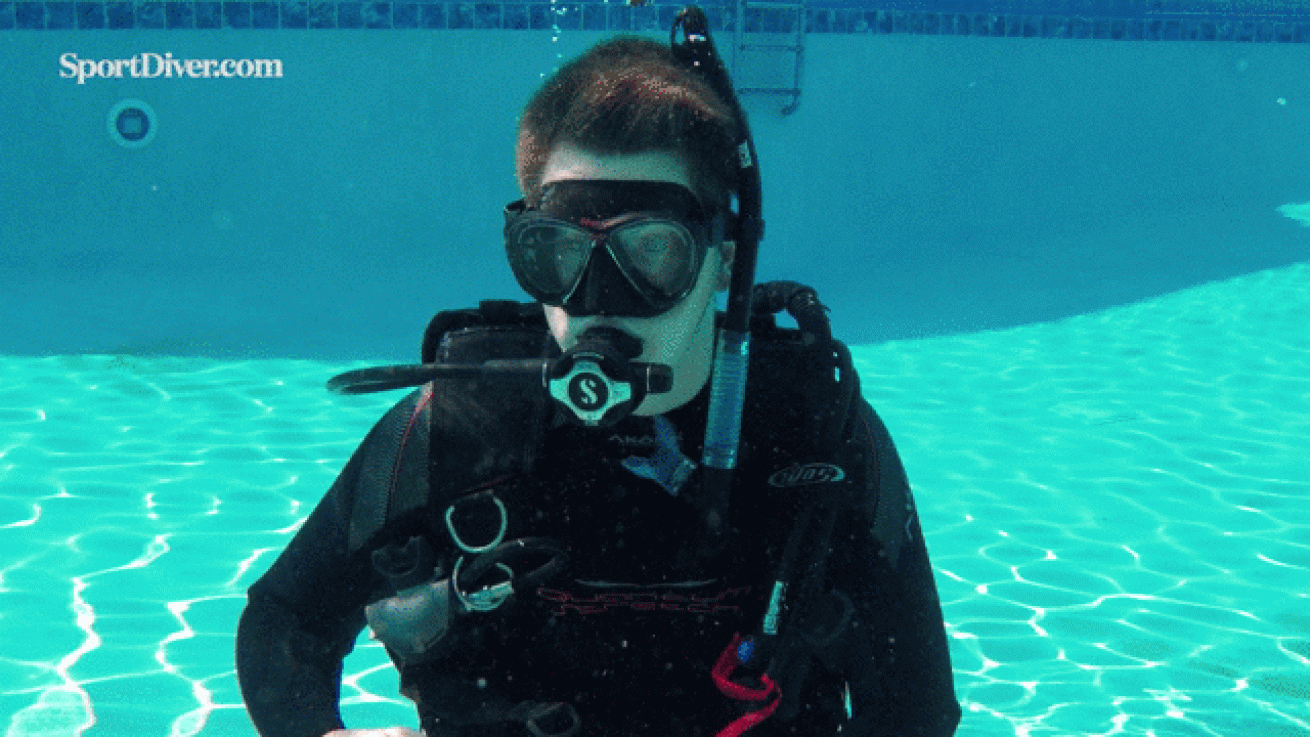
Chris BaloghDolphin
If you spot a dolphin, you better react quickly! These fascinating marine mammals don't often stick around for long. Use your index finger — or your hand — and undulate it up and down to imitate how a dolphin uses its powerful tail flukes to propel itself through the water.
Fire Coral

Chris BaloghFire Coral
Your buddies will thank you for alerting them to the presence of nearby fire coral, a hydrocoral capable of causing divers great pain when directly contacted. Note the two-part signal: Imitate the "fingers" of coral, followed by pantomining how you'd use your thumb to start the flame on a handheld cigarette lighter. If your buddy looks like he's asking you for a light underwater, diver beware!
Garden Eel

Chris BaloghGarden Eel
It's not hard to spot a group of garden eels — they can be seen on sandy bottoms with their heads popping out of their burrows. Emulate this behavior with your finger to perform this signal.
Grouper
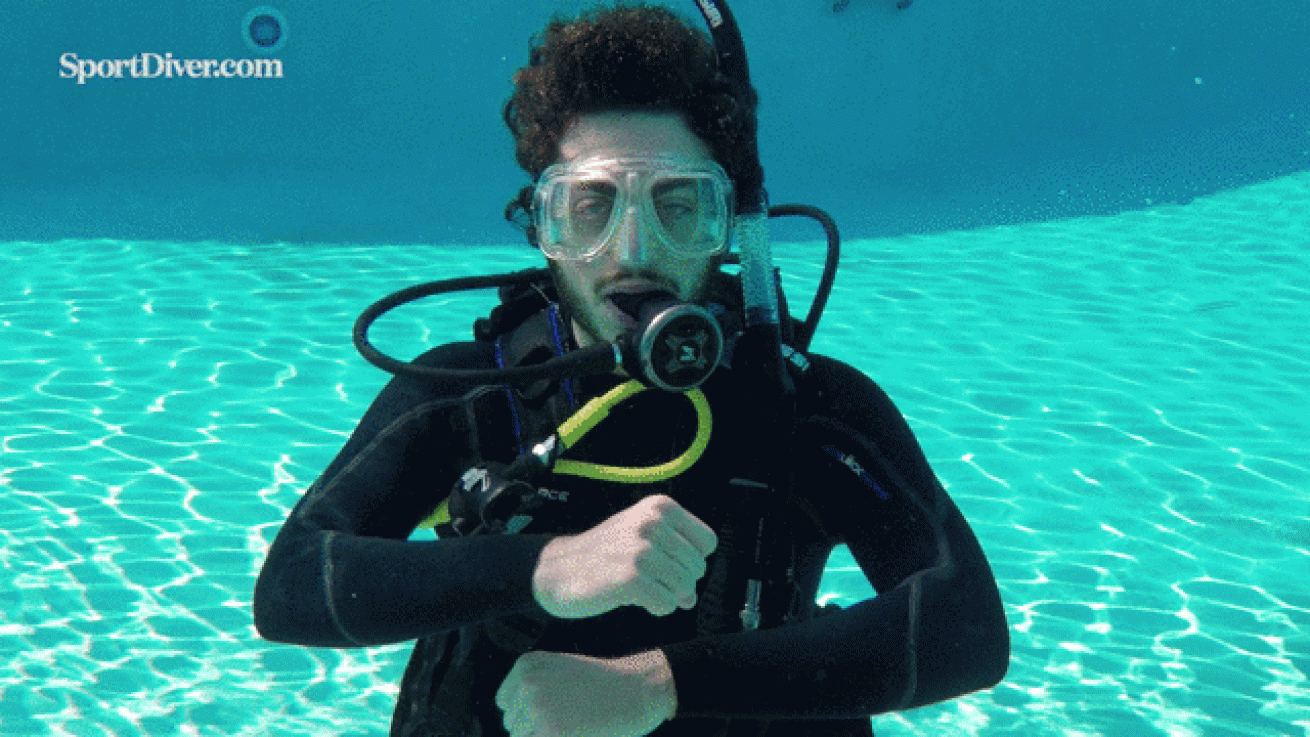
Chris BaloghGrouper
Groupers — especially the Goliath grouper — are known for their big, fat lips and even bigger mouths. Bend your arms and move them up and down like a large grouper mouth. You can also indicate that there's a large fish nearby by using your hands to gesture something huge.
Jellyfish
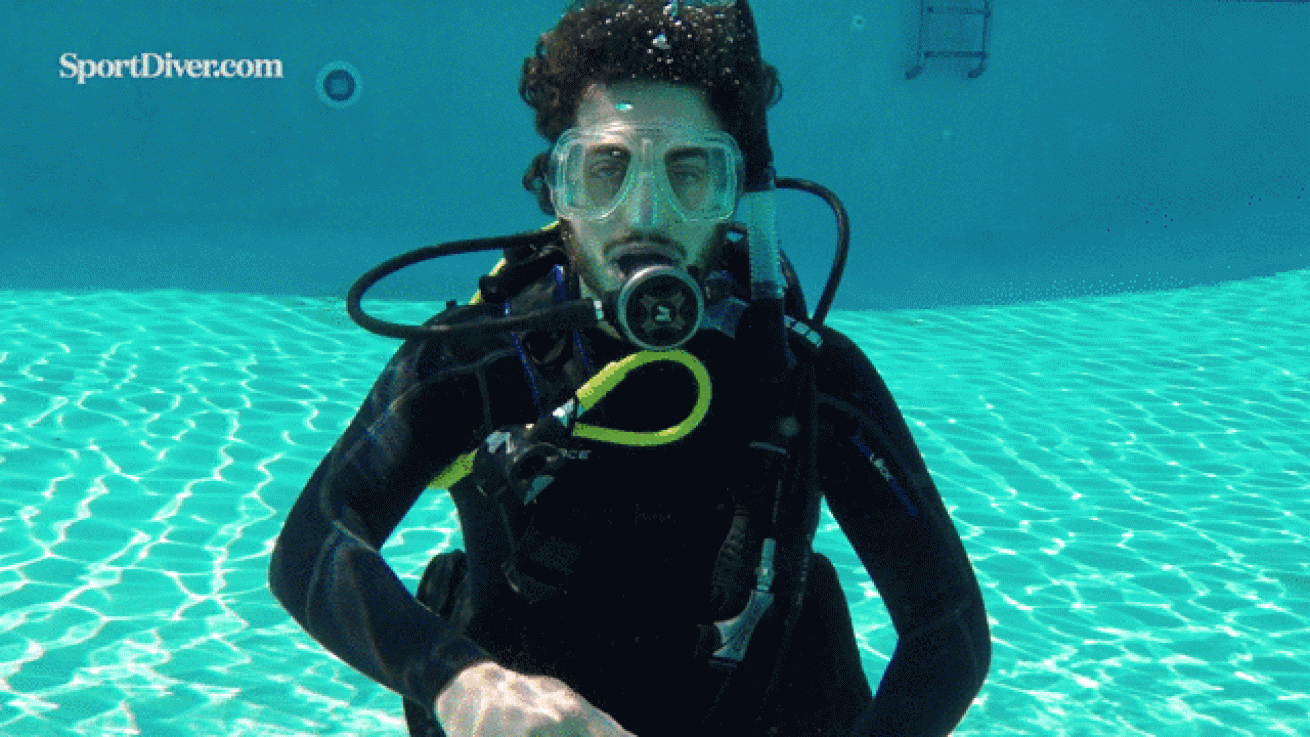
Chris BaloghJellyfish
Take your hand and float it up like a jellyfish — with your fingers trailing like a jelly's tentacles — to let your dive buddy know there's one nearby.
Lionfish
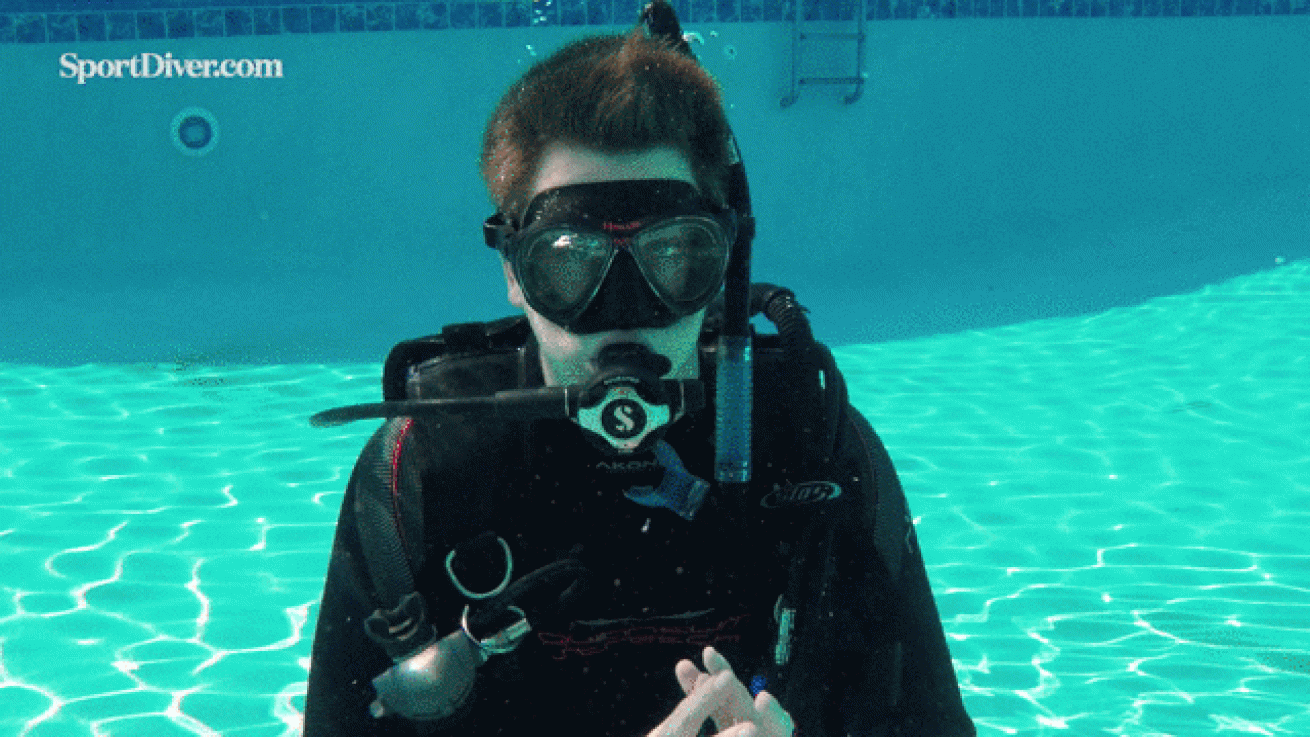
Chris BaloghLionfish
A nuisance in the Caribbean and western Atlantic and native species in the Indo-Pacific, the lionfish is an impressive sight. Interlock your hands and move your fingers back and forth to demonstrate the lionfish's mane-like fins.
Lobster
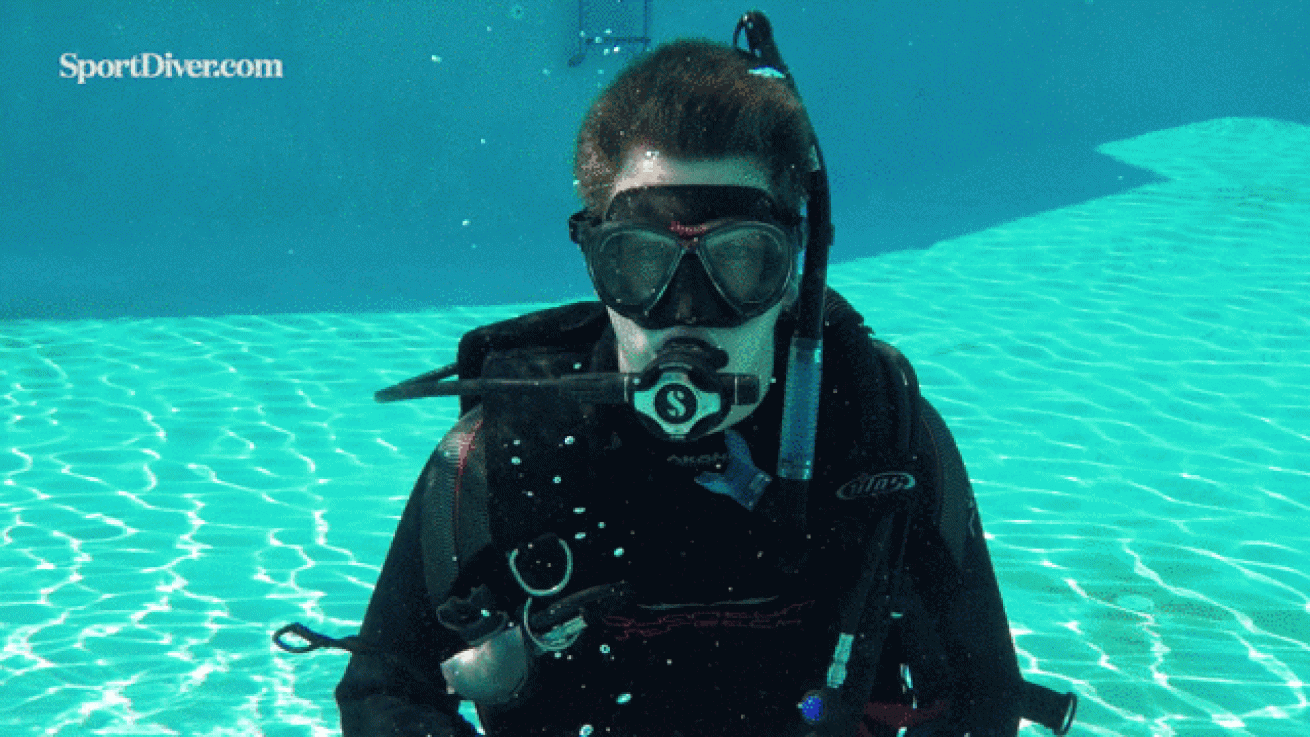
Chris BaloghLobster
Like crabs, lobsters are often found hiding under ledges. Take your fingers and point them like antennae if one is nearby.
Manta Ray

Chris BaloghManta Ray
This one is easy. If you see nearby divers waving their arms like they're gigantic flying birds, a special encounter is upcoming.
Moray Eel

Chris BaloghMoray Eel
Often found swimming about reefs in a snake-like motion, moray eels are a treat to spot on a dive. They are also commonly seen poking out of crevices, opening and closing their mouths to flush oxygen over their gills. Use the same hand signal you use to imitate someone who talks too much to mimic this behavior.
Napoleon Wrasse
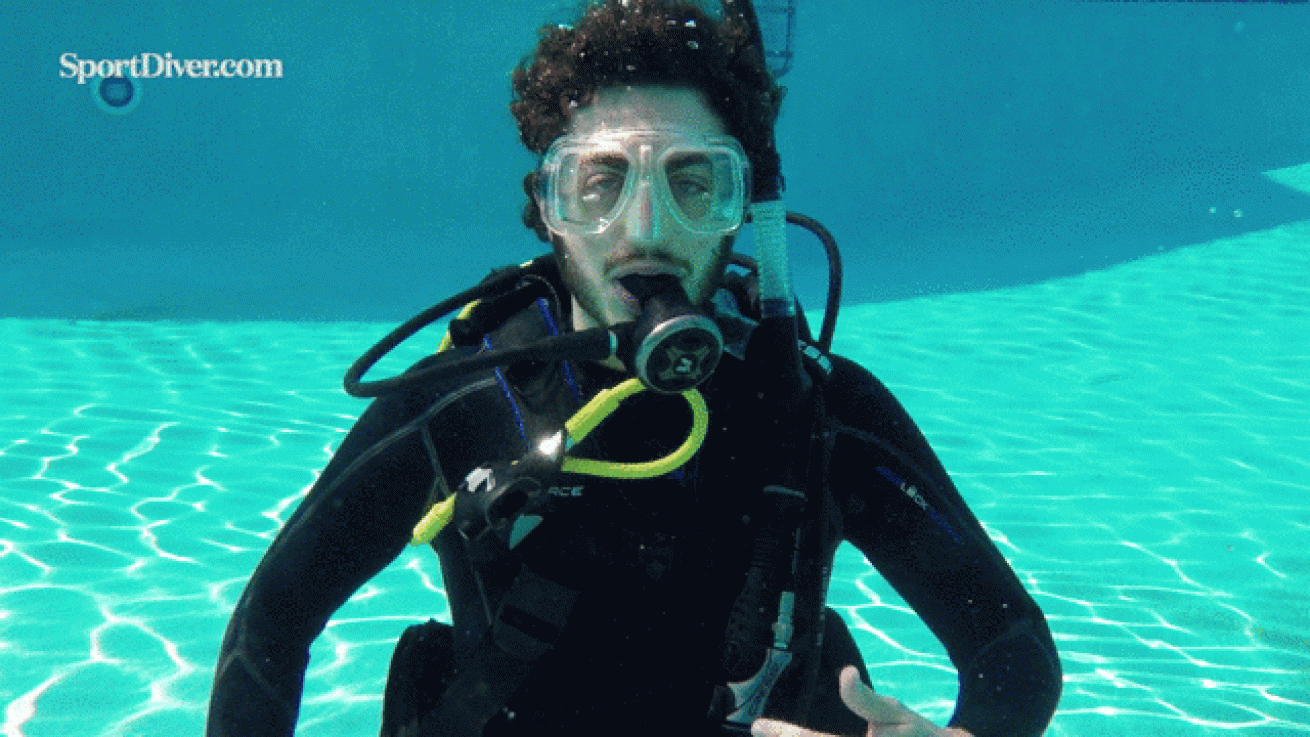
Chris BaloghNapoleon Wrasse
Also known as humphead wrasse, this strange-looking fish is a diver favorite. History buffs know just where this hand signal comes from. (Hint: Google Napoleon.)
Nudibranch
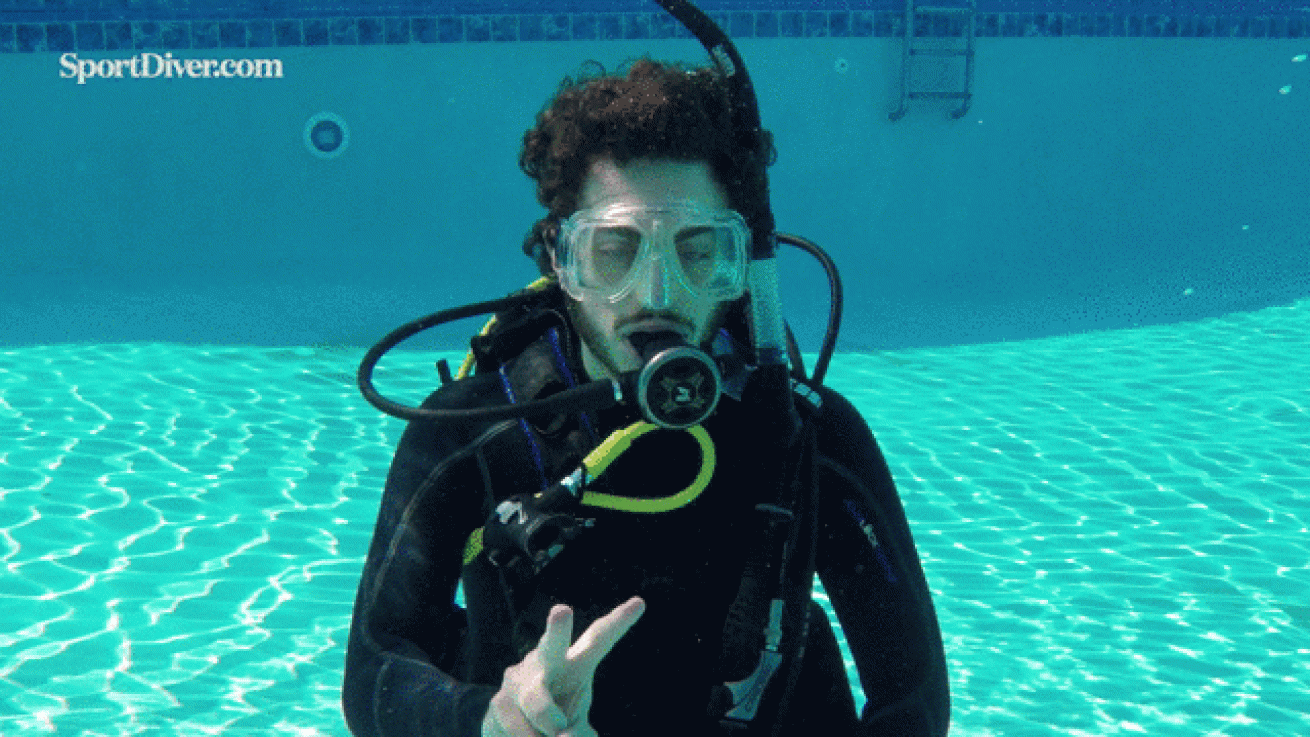
Chris BaloghNudibranch
It takes a sharp eye to spot one of these macro critters — a favorite for divers. Take your fingers and wave them like a nudi's rhinophores when you see one.
Octopus
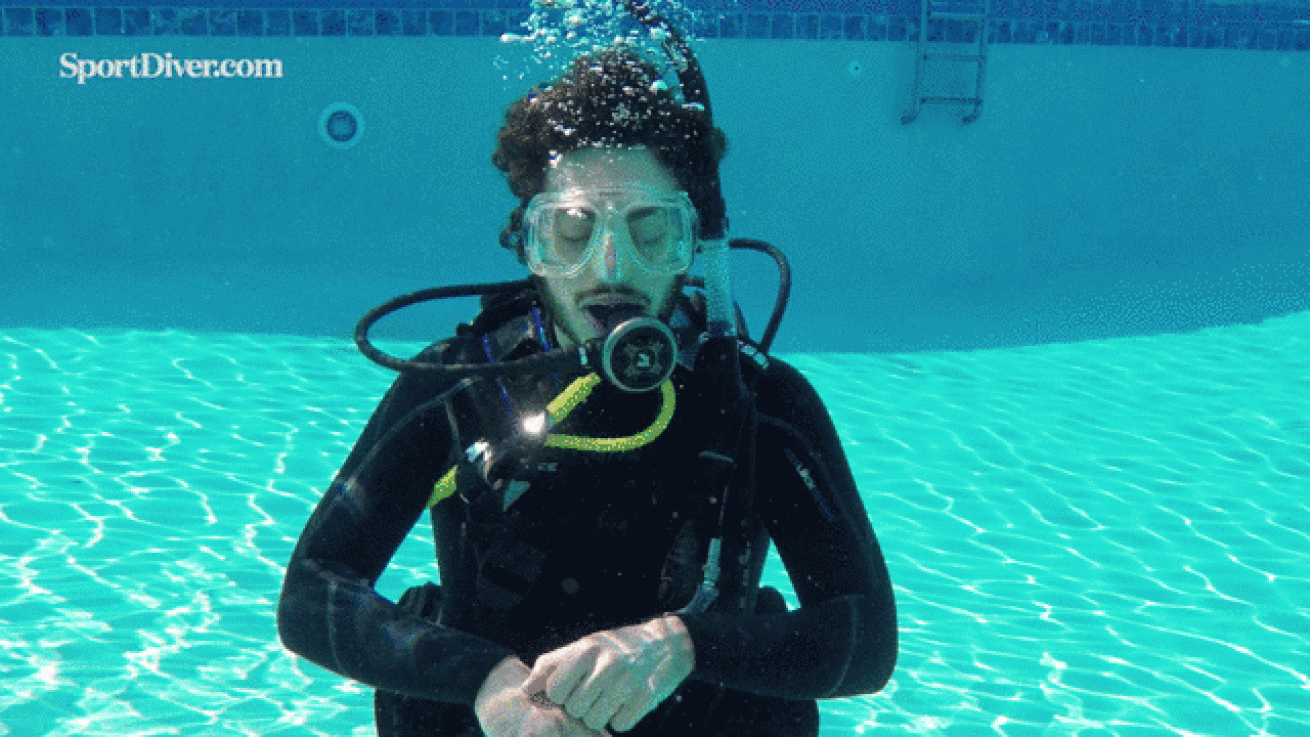
Chris BaloghOctopus
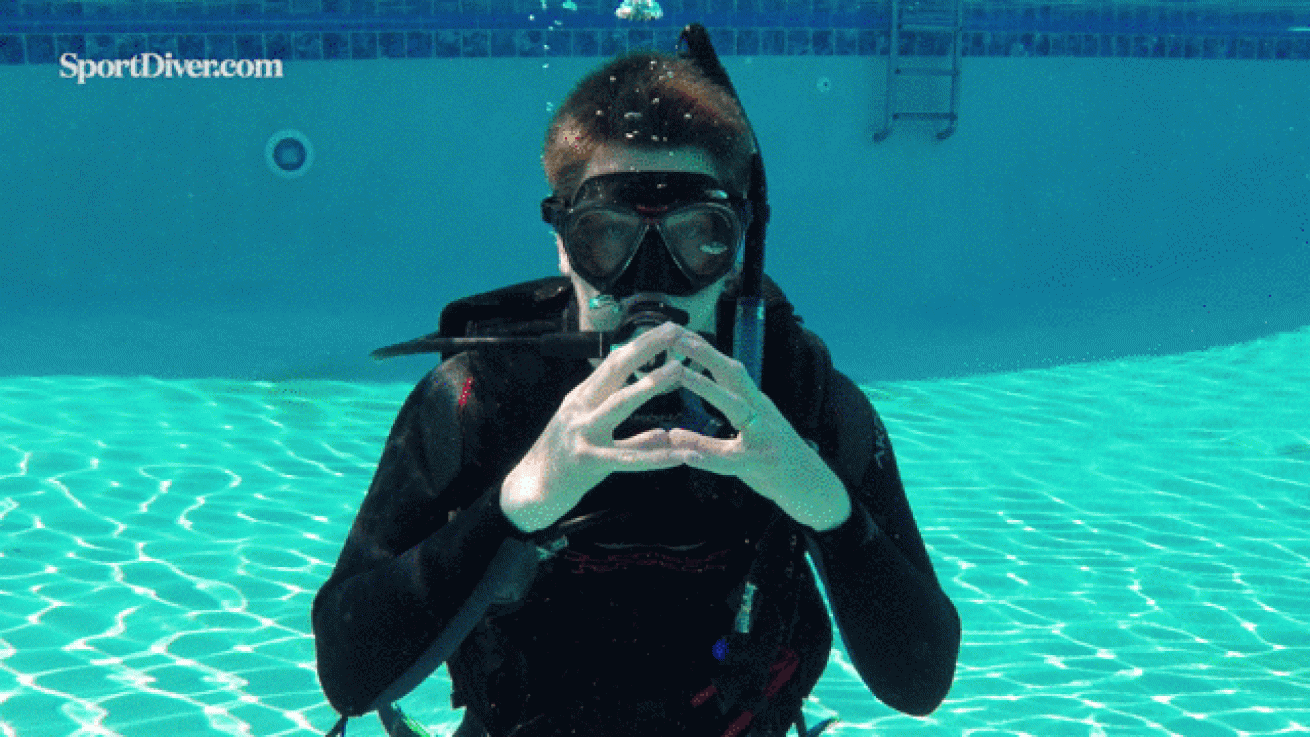
Chris BaloghPufferfish
As long as you don't harass this fish, you won't see it inflated. But you emulate an inflating sphere with your hands to show that one is close.
Seahorse
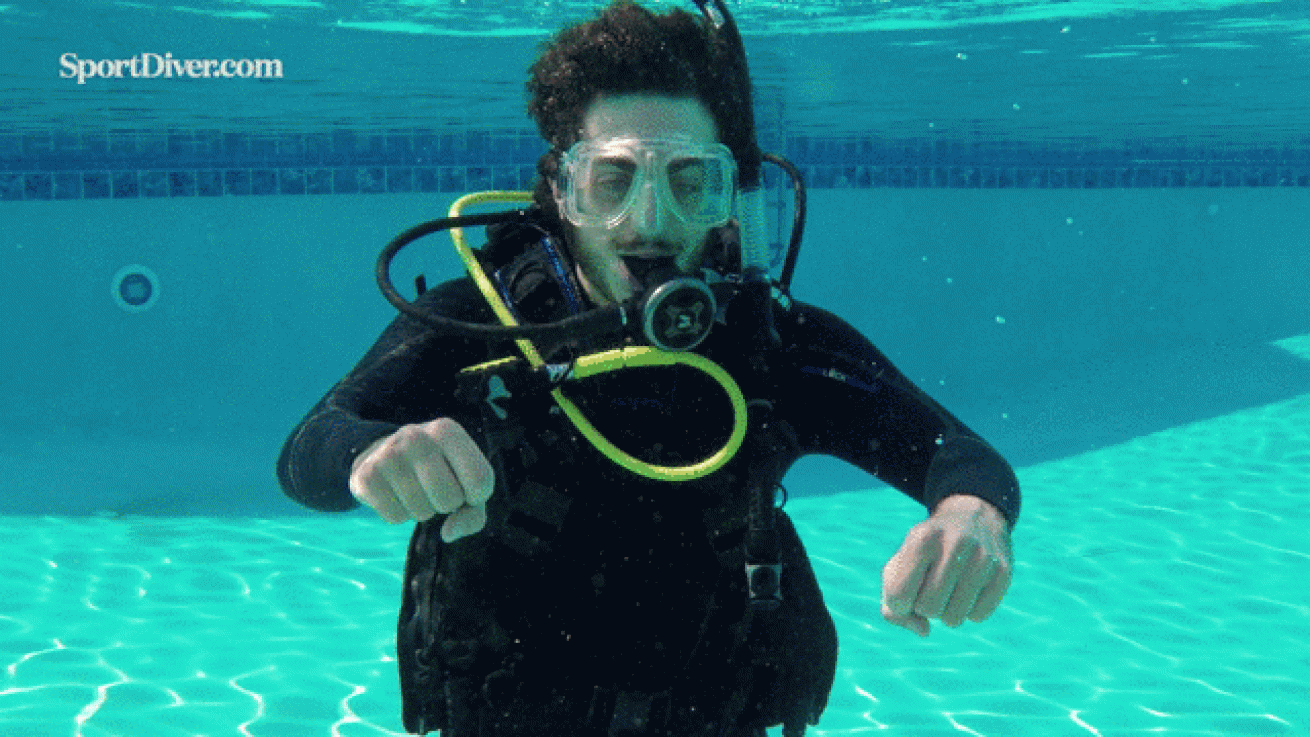
Chris BaloghSeahorse
We had some fun with this one. Get your giddy-up on to signal that you've seen one of these beloved marine creatures.
Shark
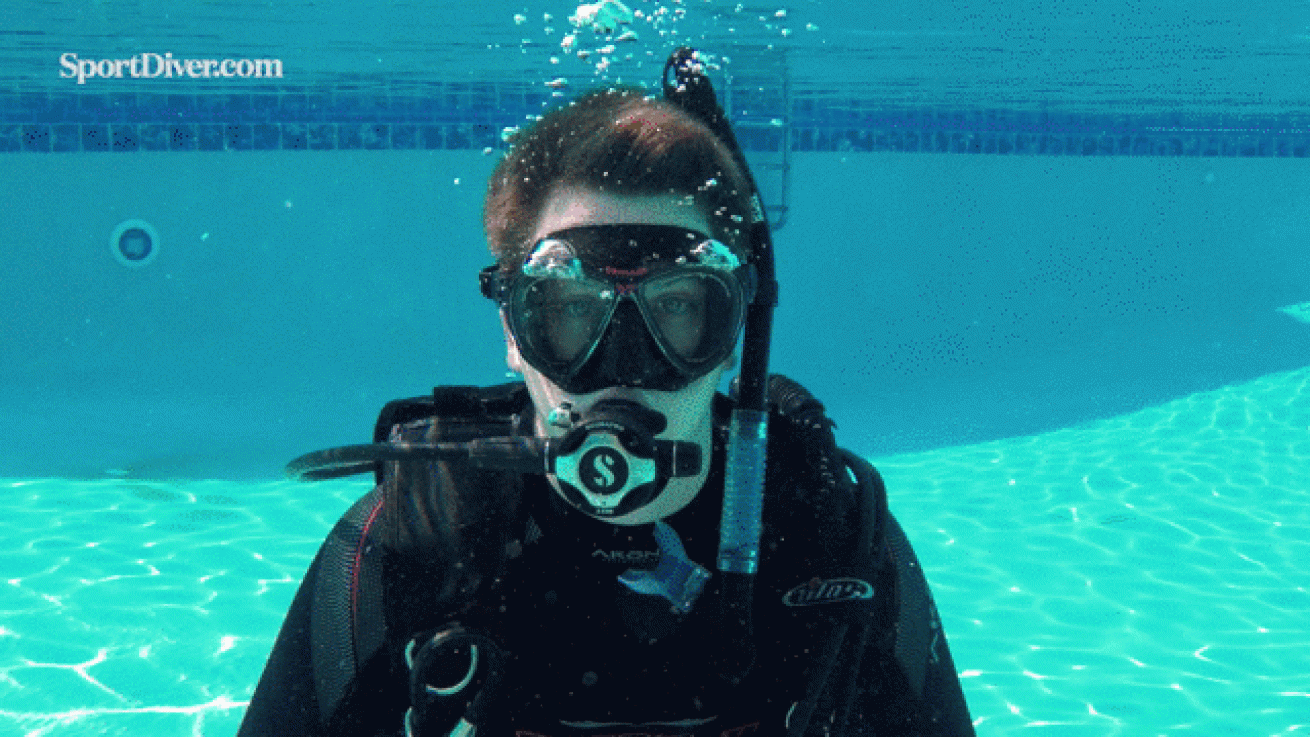
Chris BaloghShark
Sharks might be divers' favorite animal to see on a dive. If you do spot a nearby shark, take your hand and place it on your head like a fin.
Stingray
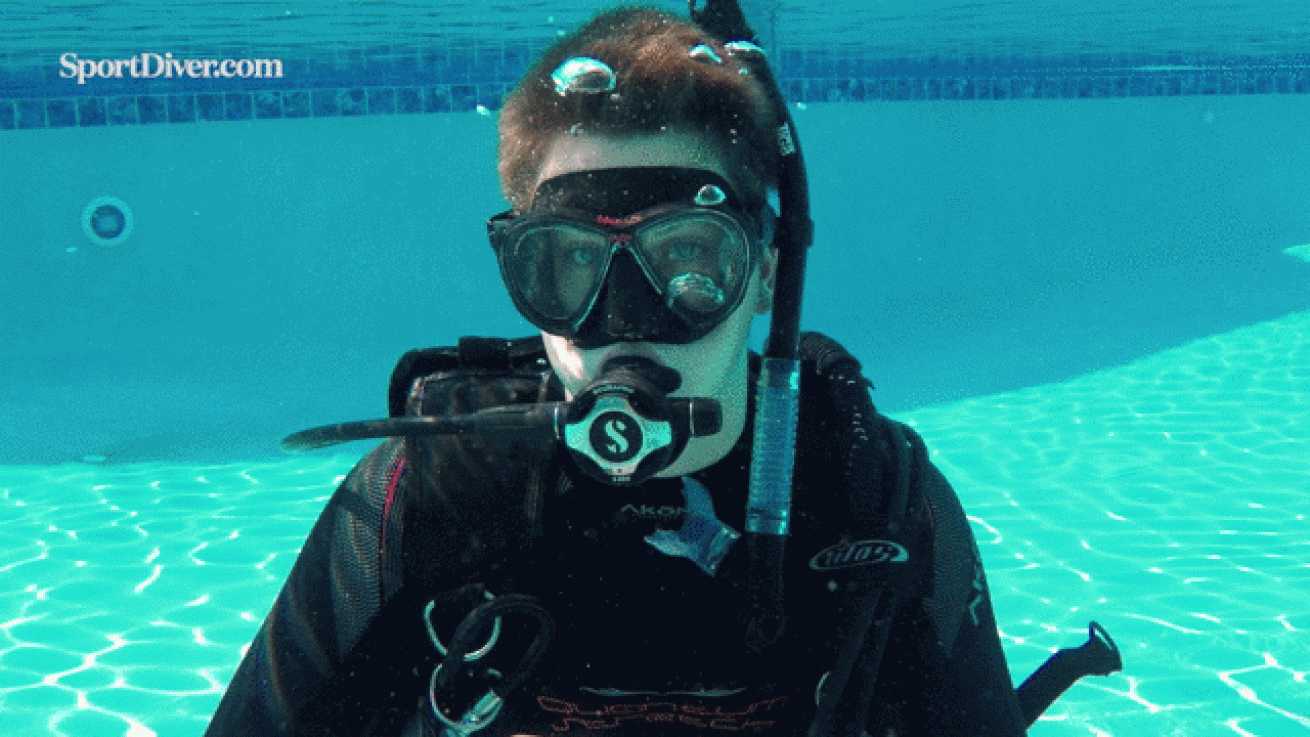
Chris BaloghStingray
Stingrays can camouflage themselves pretty well. Poke a stinger out from your other flat hand to signal to your buddy that you've seen one.
Turtle
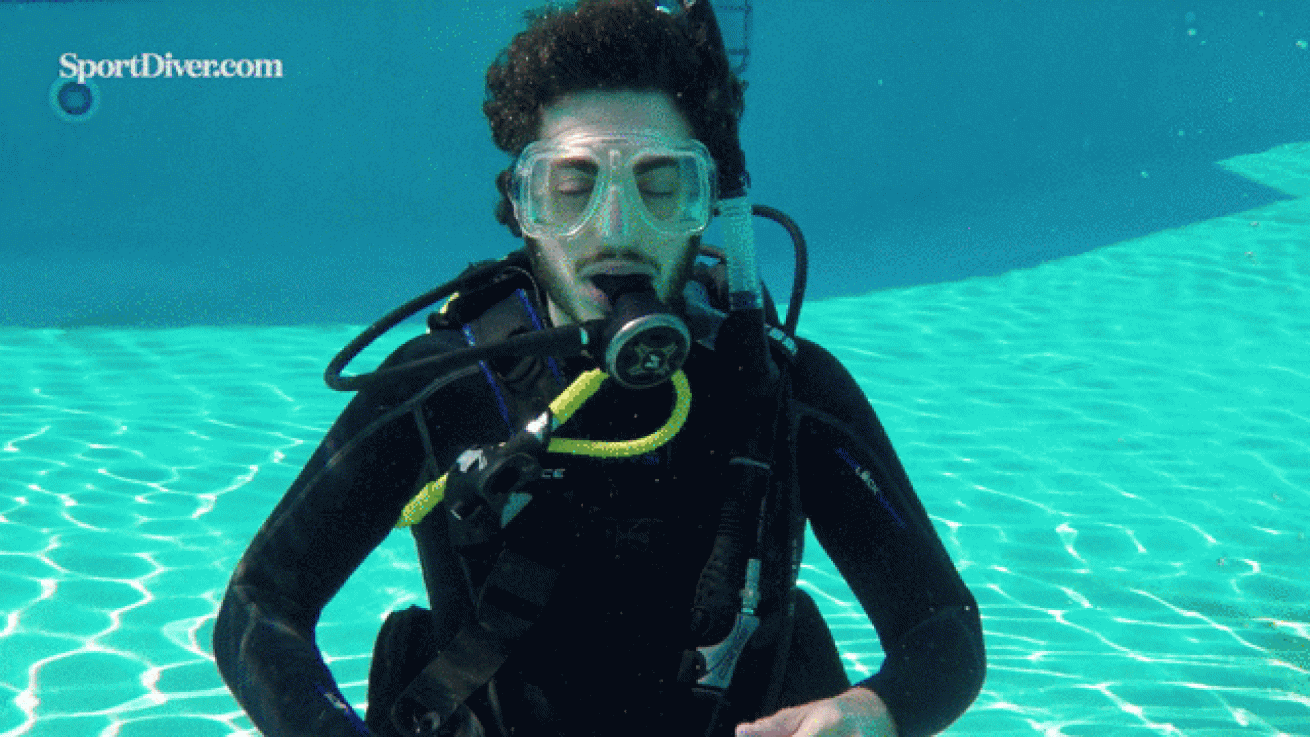
Chris BaloghTurtle
Dude. It's not hard to signal that you've spotted a sea turtle. Bring your hands together and make a circular motion with your thumbs.
Whale
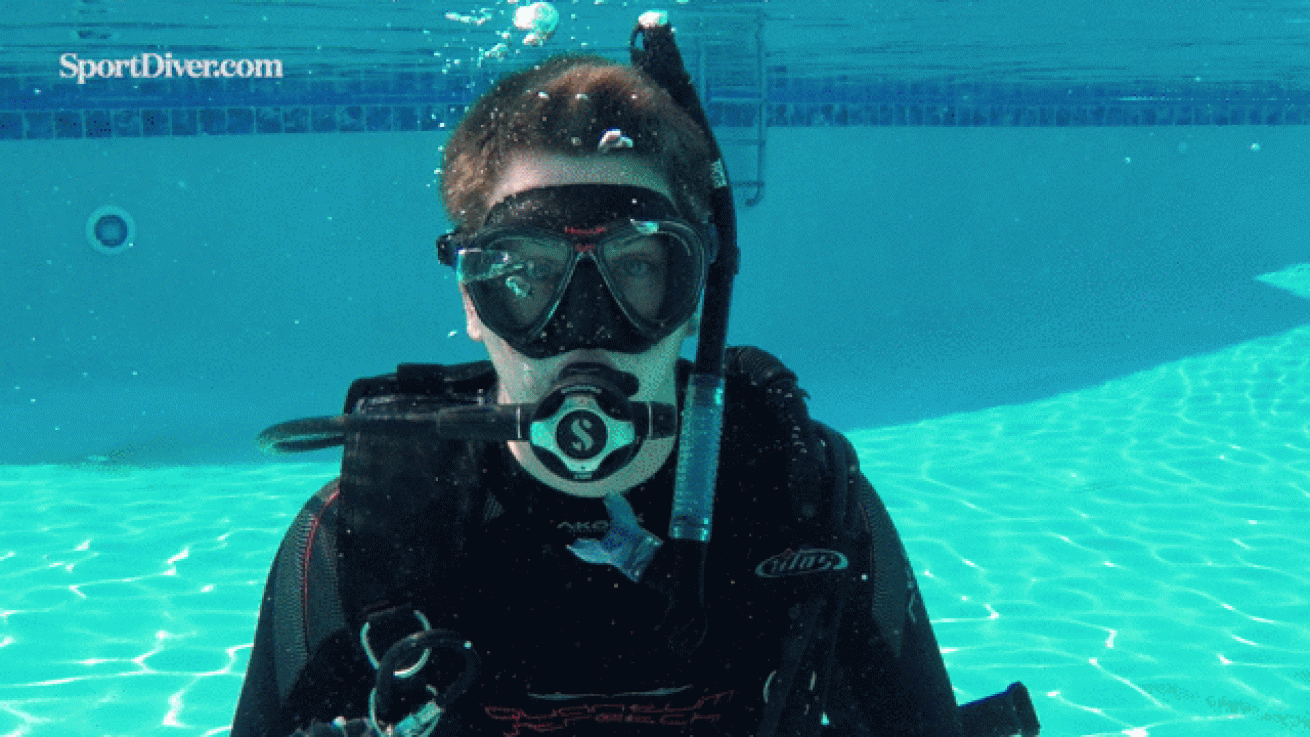
Chris BaloghWhale
Whale encounters are special. Make sure no one in your group misses it by making a breaching motion with your hand.



